The Significance of Food Tours in Tourism Development | I EAT. Food Tours
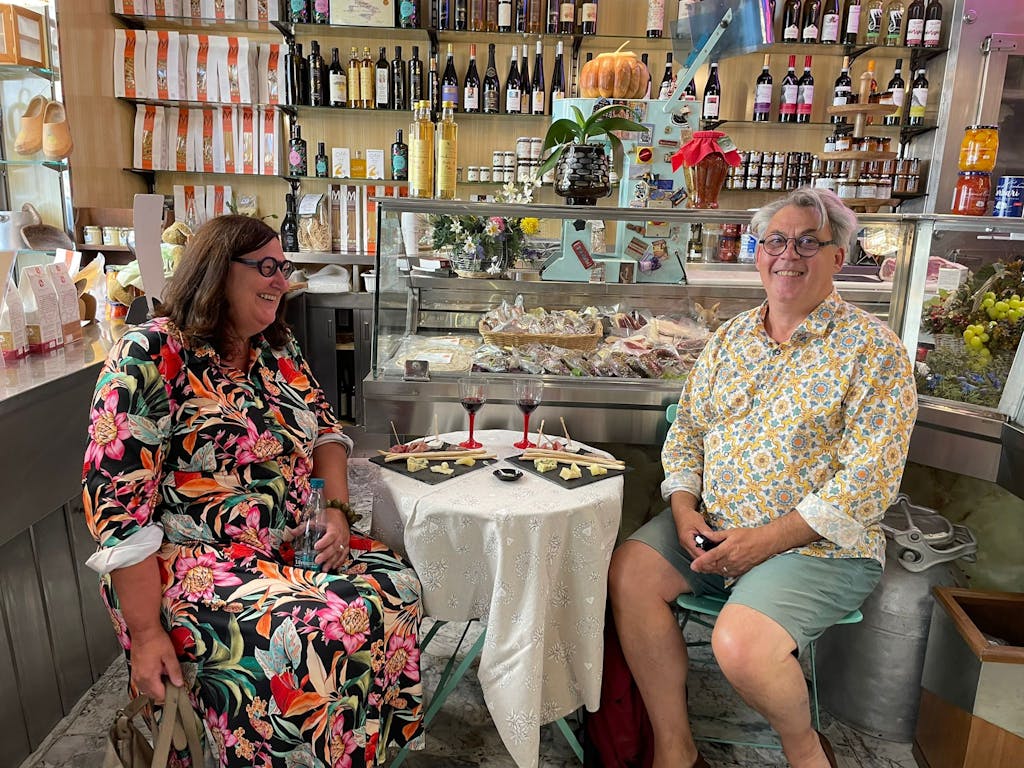
Food Cohesion in Turin. Exploring the gastronomic landscape of Turin with I EAT Food Tours
Food tours, often overlooked yet profoundly impactful, play a pivotal role in fostering sustainable tourism, nurturing local economies, and preserving culinary heritage. In the intricate fabric of global tourism, it’s undeniable that food serves as a unifying thread, blending together diverse cultures, traditions, and flavours.
Let’s delve into the multifaceted significance of food tours through a holistic lens, overviewing their socio-economic implications and cultural resonance.
I. Tourism Development
- Culinary Exploration as a Tourist Magnet. Food tours serve as compelling attractions, drawing travellers seeking authentic cultural experiences. By showcasing local cuisines, ingredients, and culinary traditions, these tours enrich the tourism landscape, offering immersive encounters beyond conventional sightseeing.
- Diversification of Tourism Offerings. In an era marked by experiential travel preferences, food tours diversify tourism offerings, catering to a spectrum of tastes and interests. From street food excursions to farm-to-table experiences, these tours cater to niche markets, enhancing destination appeal and competitiveness.
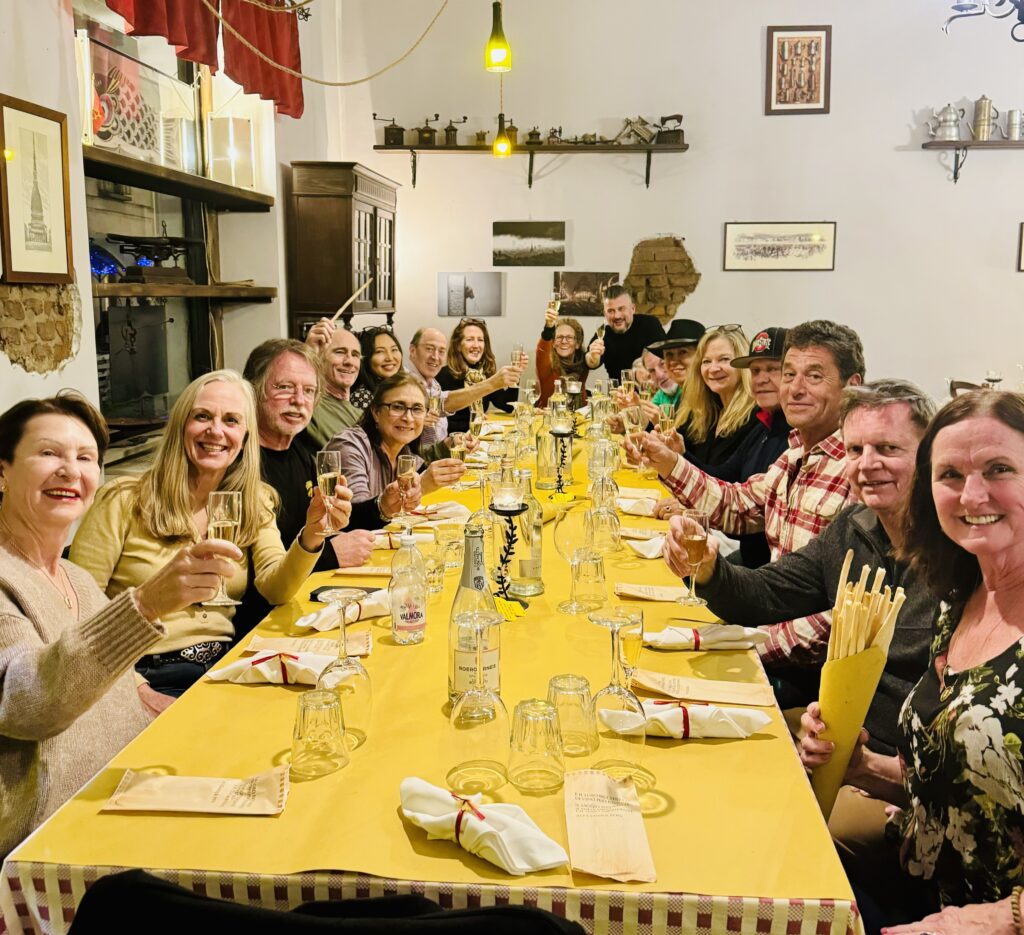
Boosting Tourism. Food Tours as a way to discover a new food destination.
II. Empowering Local Communities
- Fostering Economic Resilience. Food tours inject vitality into local economies, empowering small businesses, artisans, and purveyors. By spotlighting neighborhood eateries, markets, and culinary artisans, these tours stimulate demand, create employment opportunities, and bolster entrepreneurship.
- Cultural Exchange and Social Cohesion. Beyond economic dividends, food tours facilitate cultural exchange and social cohesion, forging connections between tourists and local communities. Through shared meals, stories, and interactions, visitors gain insight into the cultural fabric of a destination, fostering empathy, understanding, and cross-cultural appreciation.
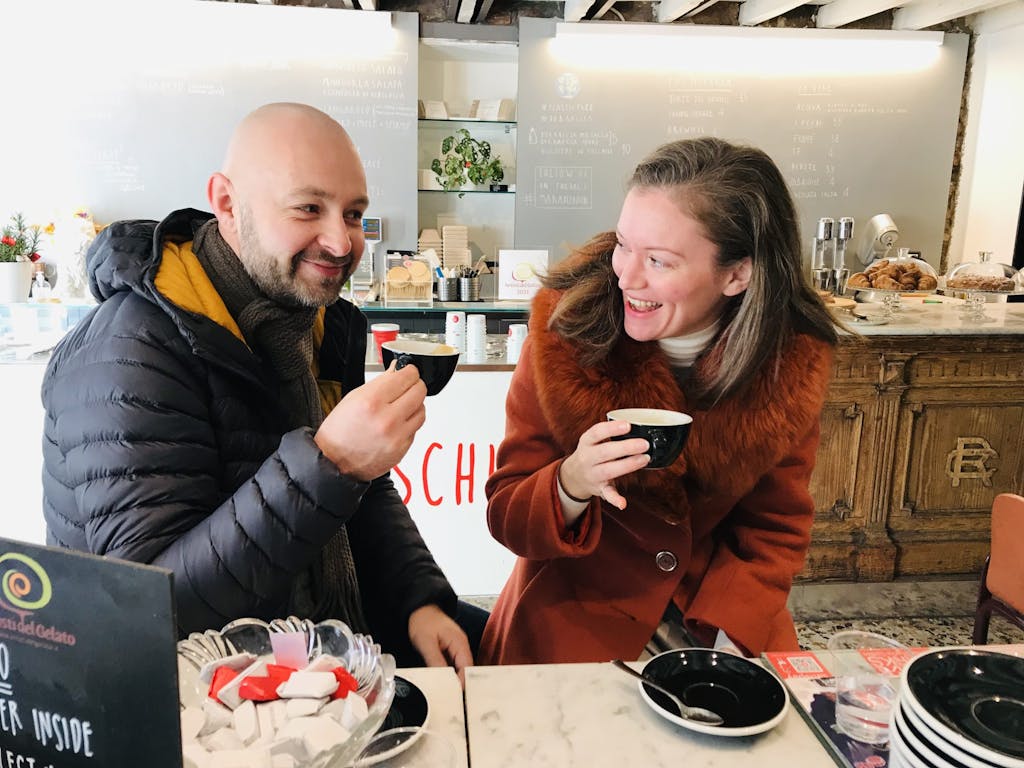
A shoot of happiness from one of I EAT Food Tours – Culinary Experiences in Turin.
III. Sustaining Culinary Heritage
- Preserving Traditional Recipes and Techniques. Food tours serve as custodians of culinary heritage, preserving traditional recipes, techniques, and ingredients from the onslaught of globalization. By celebrating indigenous flavors and culinary practices, these tours safeguard cultural identity and promote intergenerational knowledge transfer.
- Supporting Sustainable Food Systems. In an era of heightened environmental consciousness, food tours champion sustainable food systems, spotlighting local, seasonal, and ethically sourced ingredients. By patronizing small-scale producers and artisans, these tours advocate for responsible consumption practices, fostering environmental stewardship and biodiversity conservation.
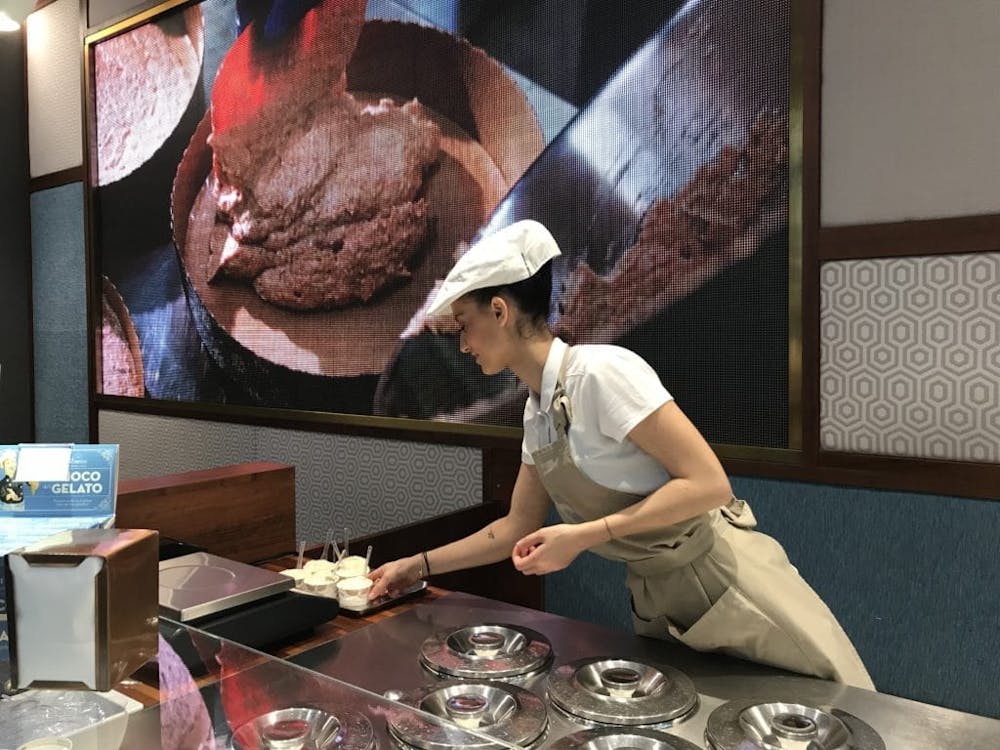
Artisanal Gelato made by a small local producer in Turin.
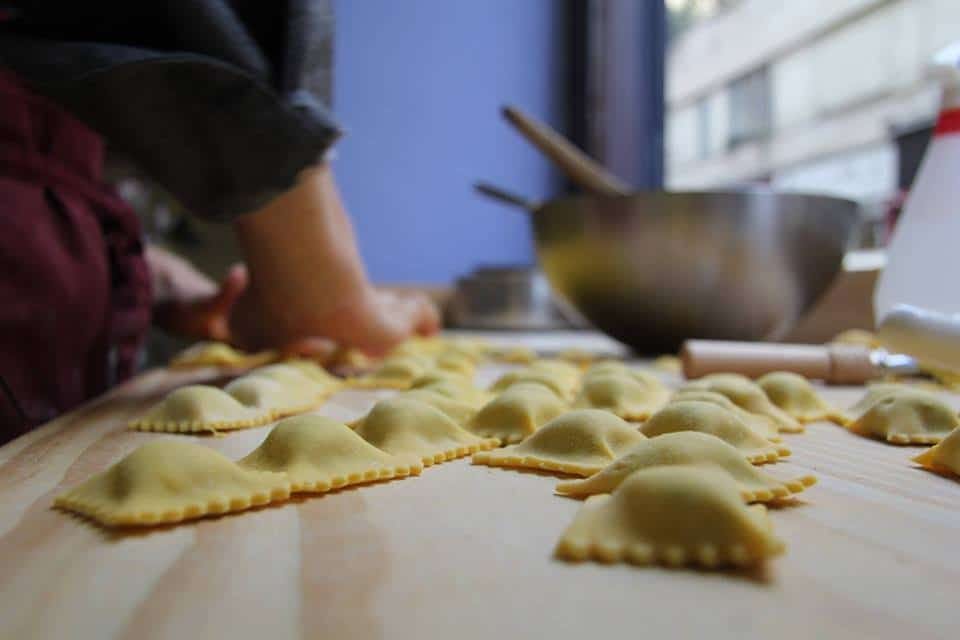
Agnolotti Cavour, served on our food tours in Turin. An ancient pasta recipe perpetuated throughout the centuries in Piedmont, handmade with love.
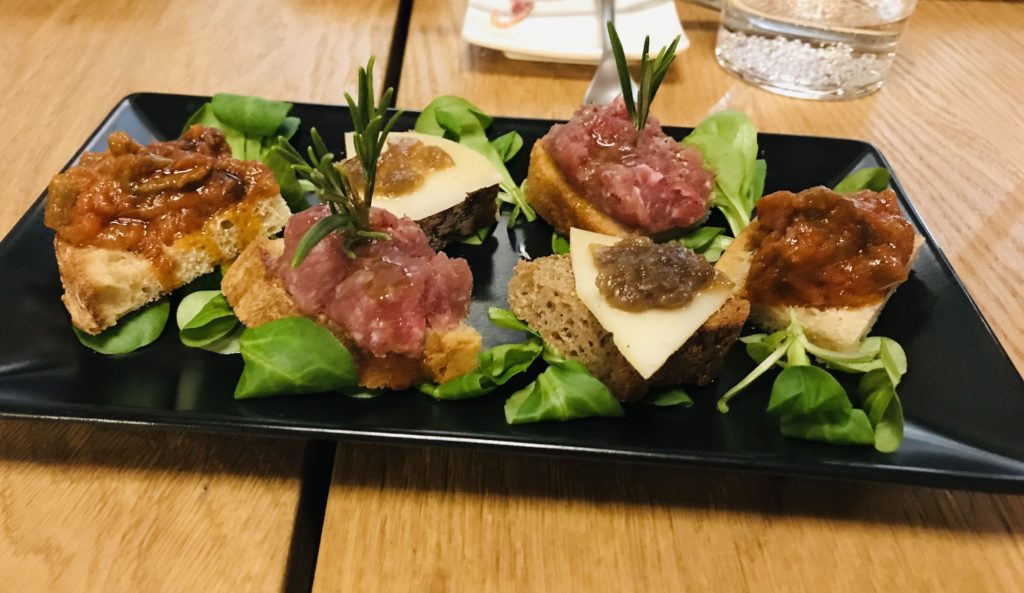
This of legendary Piedmontese bruschette from one of I EAT Food Tours – Culinary Experiences in Turin. I point your attention on the one with the iconic Bra Sausage, made out of the most lean beef’s cuts. Beautiful to taste raw on a rustic piece of bread.
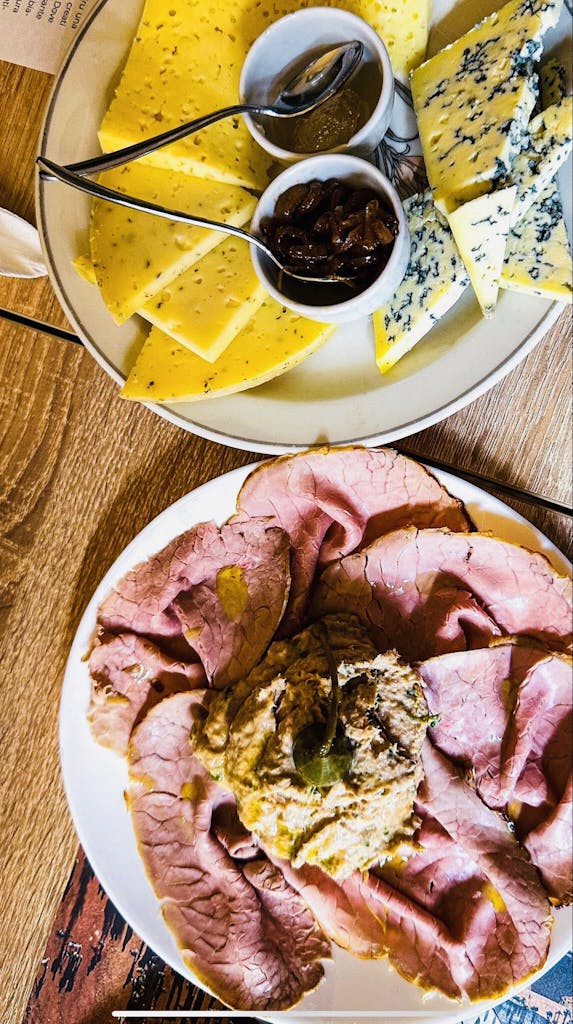
Veal with Tuna Sauce and Local Cheeses from Piedmont, served on I EAT Food Tours – Culinary Experiences in Turin.
IV. Culinary Diplomacy and Soft Power
- Promoting Cross-Cultural Understanding. Food transcends linguistic and cultural barriers, serving as a universal language of goodwill and diplomacy. Through culinary diplomacy initiatives embedded within food tours, destinations cultivate positive perceptions, foster dialogue, and bridge divides, advancing soft power agendas on the global stage.
- Catalyzing Sustainable Development Goals. By harnessing the power of gastronomy as a catalyst for sustainable development, food tours contribute to the attainment of UN Sustainable Development Goals, including poverty alleviation, gender equality, and cultural preservation. Through partnerships with local stakeholders, these tours amplify social impact, paving the way for inclusive growth and resilience.
- Culinary Icons: Bra and Turin, Ambassadors of Piedmontese Gastronomy. As a Turin’s native, operating in the realm of food tourism, I have to make a correlation with these two culinary icons. Bra, located in the heart of Piedmont, stands as the cradle of the Slow Food movement, founded by Carlo Petrini. This quaint town embodies the ethos of “good, clean, and fair” food, championing local ingredients, traditional recipes, and sustainable practices. Meanwhile, Turin, the cultural capital of Piedmont, serves as a culinary melting pot where centuries-old traditions converge with contemporary innovation. Together, Bra and Turin exemplify the rich gastronomic heritage of Piedmont, attracting epicureans and enthusiasts from around the globe. In Piedmont, the synergy between public initiatives and private enterprises is palpable in the realm of gastronomy. While Bra’s Slow Food movement fosters grassroots activism and community engagement, Turin’s vibrant culinary scene thrives on the entrepreneurial spirit of its chefs, restaurateurs, and food artisans. This harmonious balance between public advocacy and private innovation underscores the region’s commitment to culinary excellence and socio-economic development. Through initiatives like the biennial Terra Madre Salone del Gusto in Turin and the Presidia program curated by Slow Food in Bra, Piedmont asserts itself as a global leader in sustainable gastronomy and cultural preservation. These branding efforts resonate with consumers and stakeholders worldwide, positioning Piedmont as a beacon of culinary innovation and authenticity. In the face of globalization and commodification, Bra and Turin are defenders of Piedmontese gastronomic heritage. From the protection of traditional recipes like agnolotti del plin and bagna cauda to the promotion of indigenous ingredients like white truffles and Barolo wine (among others), Piedmont employs legal safeguards and cultural initiatives to preserve its culinary legacy. By promoting agritourism, supporting small-scale producers, and advocating for biodiversity conservation, Bra and Turin ensure that Piedmontese cuisine remains a source of pride and inspiration for generations to come.
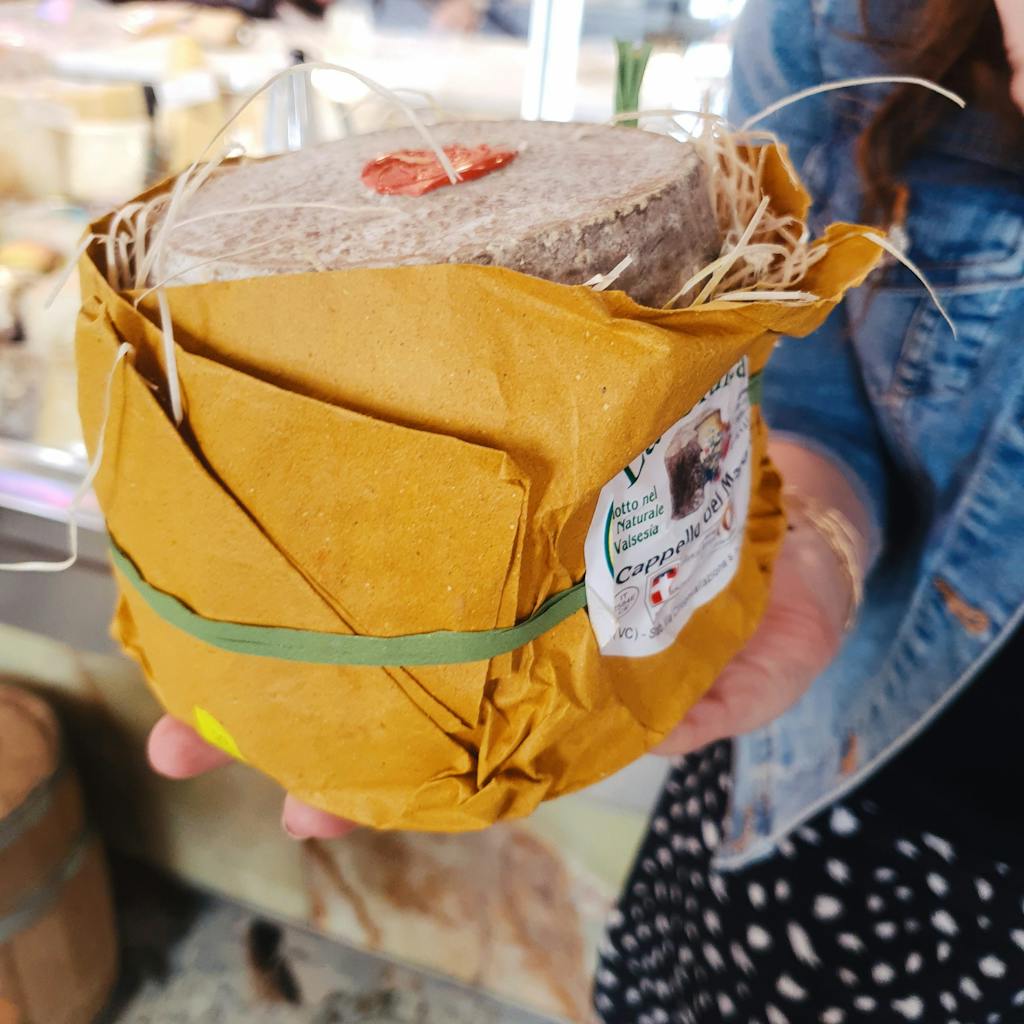
From Cheese Bra, a can’t-miss 4 days event entirely dedicated to the magic world of cheese! In the picture: Cappello del Mago, The Magician’s Hat cheese.
VI. Sociologists as Cultural Architects
I have to make a small premise before we go into details.
In the realm of culinary tourism, I noticed that exists in Italy a sort of confusion regarding the role of sociologists for non-experts. Despite luminaries like Carlo Petrini, founder of the Slow Food Movement, being trained as sociologists themselves, many fail to grasp the significant contribution of sociology to develop and enrich the culinary tourism sector. As a sociologist and culinary curator myself, co-founder of I EAT Food Tours in Turin, I also feel affected by this lack of knowledge, therefore I believe it’s important to provide the following oversight to highlight the role of sociologists as cultural architects, with particular reference to the intersection of sociology and gastronomy.
- Empowering Communities through Gastronomic Tourism. As a sociologist and culinary curator, you embody the essence of cultural stewardship and community empowerment. Sociologists, with their keen insight into societal dynamics and cultural nuances, carry a profound responsibility in shaping destination narratives and fostering inclusive development. In the context of Turin, where I am based and operate, a city steeped in culinary heritage and gastronomic innovation, their expertise serves as a catalyst for transformative change, unlocking the socio-economic potential of gastronomic tourism to empower local communities and preserve cultural identity.
- Navigating Complex Socio-Cultural Landscapes. Sociologists navigate the intricate scenario of socio-cultural landscapes, unraveling the interconnected threads of history, tradition, and identity woven into the fabric of Turin’s culinary scene. Through ethnographic research, community engagement, and cultural advocacy, they (potentially) have the knowledge and the vision illuminate the untold stories behind each dish, bridging the divide between past and present, tradition and innovation.
- Fostering Sustainable Tourism Practices. In an era marked by the commodification of culture and mass tourism, sociologists play a pivotal role in advocating for sustainable tourism practices grounded in ethical principles and cultural sensitivity. By promoting responsible consumption, equitable partnerships, and community-based tourism initiatives, they contribute to safeguard Turin’s gastronomic legacy for future generations, ensuring that tourism becomes a force for positive social change rather than cultural erosion.
- Cultural Diplomacy and Global Engagement. Beyond the confines of Turin, which is the city where I am based and operate, sociologists can engage in cultural diplomacy initiatives that elevate the city’s culinary reputation on the global stage. Through collaborations with international partners, gastronomic festivals, and culinary exchange programs, they can showcase a specific city as a beacon of gastronomic excellence and cultural exchange, fostering cross-cultural understanding and dialogue.
- Championing Inclusivity and Diversity. In a rapidly evolving world, sociologists advocate for inclusivity and diversity within any city’s gastronomic landscape, celebrating the contributions of diverse communities and marginalized voices. By amplifying underrepresented culinary traditions, supporting minority-owned businesses, and promoting cross-cultural dialogue, they help to cultivate a more inclusive and vibrant culinary ecosystem that reflects the true essence of the city’s cultural mosaic.
In conclusion, food tours embody the essence of experiential travel, offering immersive journeys that tantalize the senses, ignite curiosity, and foster meaningful connections. From stimulating tourism development and empowering local communities to preserving culinary heritage and advancing soft power agendas, the significance of food tours reverberates far beyond the confines of the dining table. As we savor the diverse flavors of our world, let us recognize the transformative power of gastronomy in shaping a more inclusive, sustainable, and culturally rich global landscape.
Thanks for reading and hope to meet you in Turin on one of our tailored culinary tours!
Cecilia
About the Author
My name is Cecilia Puca and I am an Italian Sociologist specialised in immersive gastronomic tourism. Self confessed spiritual junkie, out of the box thinker and emphatic by nature, I love meeting people from around the globe and making impactful experiences through food and a multidisciplinary approach that reflects my diverse background and set of interests.
In 2018 I co founded my own business, I EAT. Food Tours in Torino, and have became a local food teller & ambassador. I carefully curate food tours, team building activities and culinary vacations in Piedmont. I am also the content creator for this website and the social networks connected to IEFT.
Distinguishing mark: severe case of Wanderlust (or Wanderland!). Plus: I am never the same age in the same day, that’s why I have friends of all ages!
